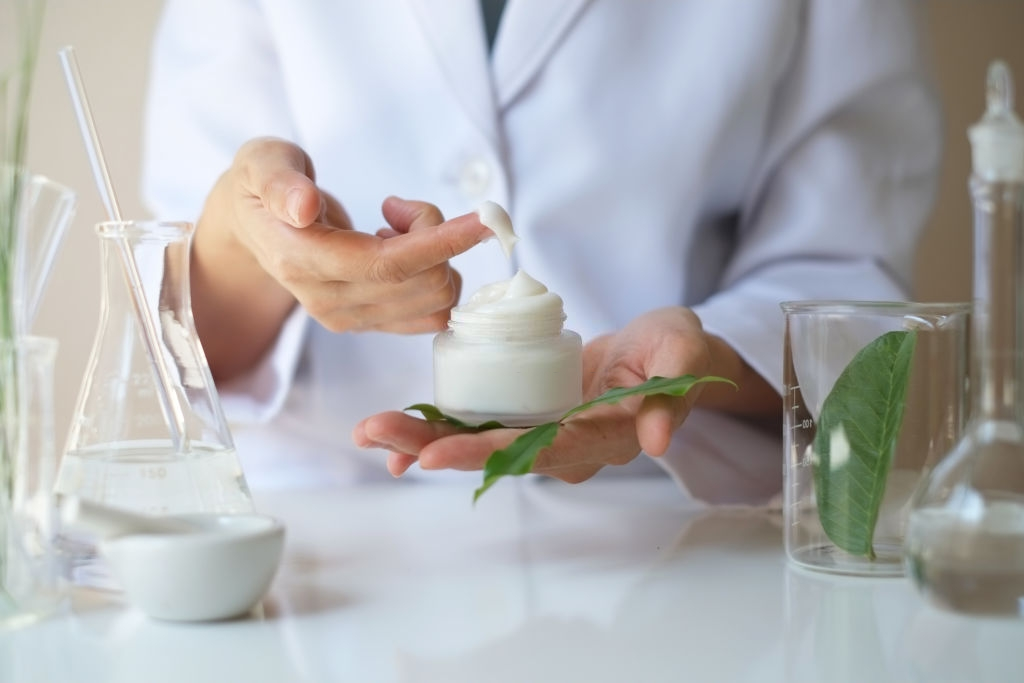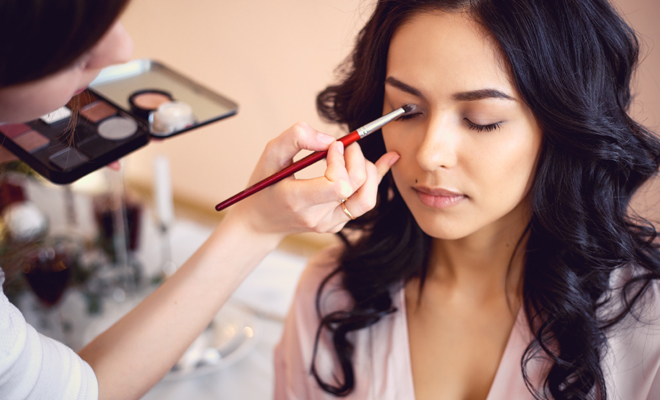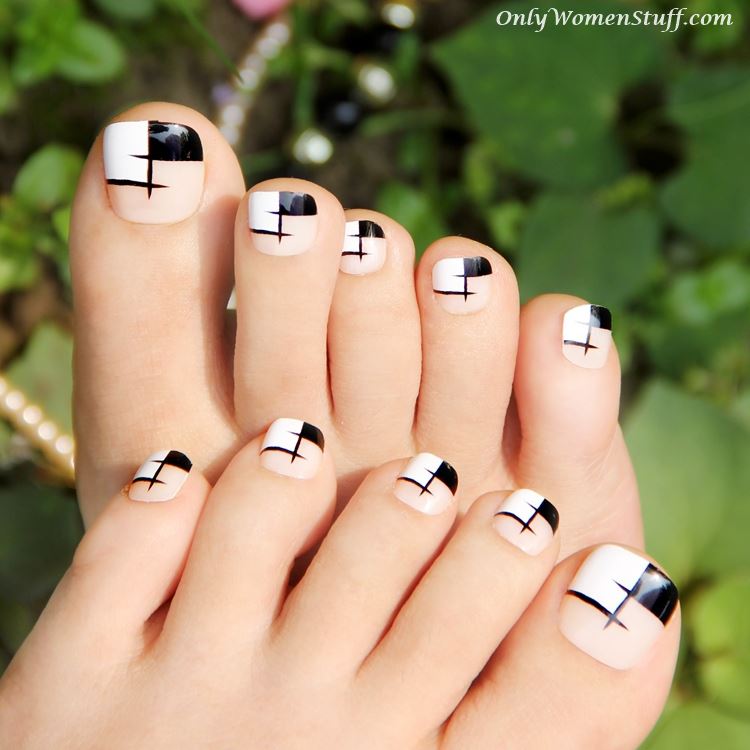The Secret Behind Organic Beauty Products
The Secret Behind Organic Beauty Products: With all of the new diets, fitness routines, and trends, it’s clear that living a healthy life has become a priority for many people. This is especially true in the beauty industry, where tons of new skincare products are released to the market every month. You may be trying these new products in hopes of perfecting your skincare routine, but have you really thought about what you put on your skin every day? We often overlook a very important fact: what we put on our bodies can affect our overall health. If we’re not careful about the types of products we use, we could do more harm to our bodies than good.
The beauty industry is often unregulated, which means that harsh chemicals can make their way into the products we use every day, from our cosmetics to our lotions and shampoos. So, how do you know you’re using a product that’s good for you? Many people see the “organic” logo on a product and quickly assume it’s okay. However, with greenwashing taking over our packages, there are a few things you need to look out for to ensure you’re buying true organic products. We’ve outlined a few easy steps to follow to make sure you’re getting the real deal.

Qualifications for Organic Beauty Products
Before we jump into how to find organic beauty products, we’ll go over how a beauty product qualifies as organic. Organic beauty is free from such things as parabens, phthalates, chemicals, and genetically modified ingredients. These products are also made without artificial scents, flavors, and colors. Companies that make organic beauty products strive to let nature shine through, which means using the simplest ingredients.
Steps for Finding Organic Beauty Products
It can be hard to know if you’re getting a truly organic beauty product, so that’s why we’re here to make the process simpler. Once you know a few key things to look out for, you’ll be shopping like a pro.
1. Look for Certification Seals:
One of the best ways to ensure you are choosing an actual organic product is by looking for certification seals on the packaging or the product itself. Great sources for certification seals include USDA, NSF/ANSI 305, COSMOS, and Soil Association because they all set the bar high for qualification. If you see one of these seals on a product, it’s a guarantee that what’s inside is fully organic.
Products with the USDA Organic seal have gone through a stricter process for the qualification because this standard was created for food products rather than personal care items. Some companies that create certifications for organic body care products allow greater amounts of preservatives and harmful ingredients to pass through. If you buy a USDA Certified Organic product, you can be confident that it has at least 95% of organic ingredients and does not contain GMOs, synthetic fertilizers or pesticides, or harmful preservatives.
2. Beware of “Made with Organic” and “Natural”:
Brands can add the words “Made with Organic” or “Natural” to their product packaging or ingredients list without having to go through a certification process. In fact, products with “Made with Organic” only need 20% of their ingredients to be organic (while certified organic products need 95% organic ingredients). With “Natural” products, the ingredients may come from nature, such as from plants or animals, but they can be modified to some degree (such as deodorized or bleached). These products can still be harmful to your skin and the environment.
3. Read the Ingredients List:
If you want to know what is really in your product, read the ingredients list. An easy tip to remember: the ingredients listed first have the highest amount. If those first few ingredients are foreign to you, it may be a good idea to skip buying that product.
However, some ingredients are listed using their scientific name, and that’s not always a bad thing. For example, citric acid is just acid found in citrus fruits. So, if you don’t recognize an ingredient, go ahead and use trusty Google to look it up.
If “fragrance” or “dye” shows up somewhere on the ingredients list, the product is most likely not fully organic because chemicals are used in the production of the product. Companies are not required to disclose what’s in their fragrances, which means they can use chemicals to create the scent they want. These chemicals can cause serious health complications. Beauty products that are truly organic, especially when they are USDA Certified Organic, will not list “fragrance” as an ingredient and will often use essential oils or extracts to create a scent.
Why Organic is Best for Beauty Routines
Why should you shop for certified organic products to fit into your beauty routine? Because it’s just as important to think about what you put on your skin as you put into your body. Just as you wouldn’t eat greasy junk food on a regular basis, you wouldn’t want to put harmful chemicals on your face. Toxins from parabens, phthalates, and other chemicals will eventually go right into your body and may lead to cancer.
Similar to needing the best workout routine to get the best results when you’re trying to lose weight or tone up your muscles, you also need the best ingredients in your beauty products so you can achieve your healthiest skin. Organic beauty products are perfect for people with sensitive skin because they don’t contain chemicals or ingredients that are often known to irritate a person’s skin. Instead, they have simple, fresh ingredients that will help your skin shine.
Organic beauty products are also great for the environment. When you buy organic, you’re preparing a better future for the earth, marine life, and the farmers preparing the ingredients for your beauty products. During the production of many of our commonly used products, chemicals have used that end up leaching into the ground and traveling to rivers and the sea. These chemicals cause algae to die and oxygen in the water to deplete, starving fish and killing larger animals. Organic products are produced without these harsh chemicals, which saves our oceans and marine life. Who could say no to helping dolphins?
Go the Extra Step with Organic
While shopping for organic products may require a little more time and attention, it will eventually become second nature in no time. Simply look for certification seals from USDA, NSF/ANSI 305, COSMOS, or Soil Association. If a product doesn’t have a certification seal, don’t sweat it! Run through the ingredients list and, if everything checks out, it’s still okay to buy the product.
If you need help or have questions along the way, reach out to a community of people who love to shop organic. They will be happy to help you on your journey to full wellness.
Author Byline: Louisa Quinn is the Regulations Manager at Organic Fiji. She handles all the certification applications, ethics and regulations of products/practices, and ingredient sourcing for their organic coconut oil products. Louisa enjoys empowering women and men to protect the environment, animals, and people by educating them on practical and ethical ways to shop for personal care items and organic beauty products.
Related Other Posts:
- How to Properly Take Care of Dry Skin
- 10 Best Epilators for Face
- 10 Best Mole Removal Cream Which Works Magically
- Home Remedies to Get a Glowing Skin






